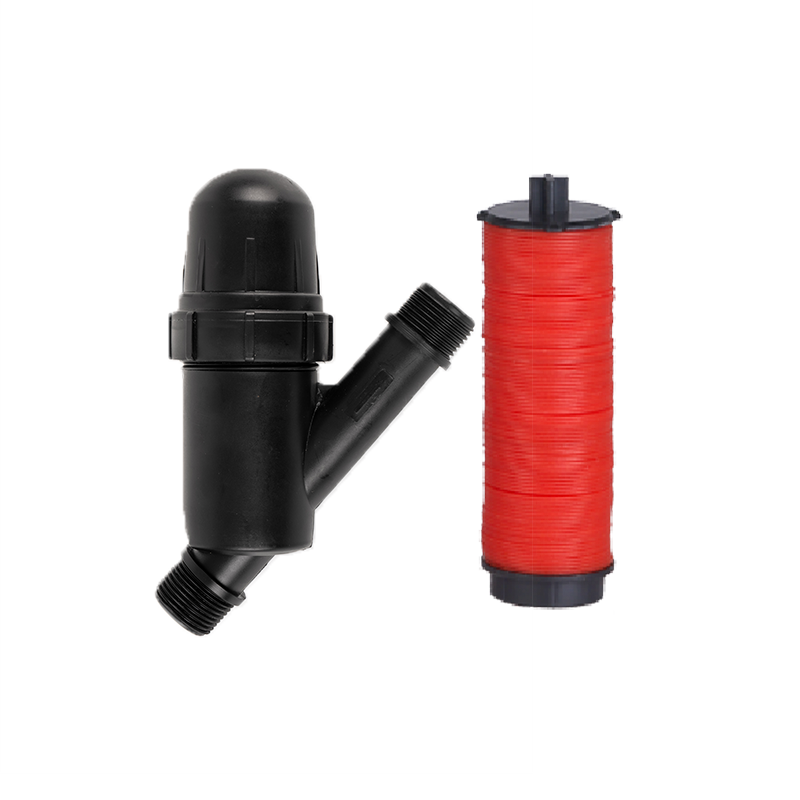 By Admin
By Admin The garden irrigation filter can help reduce water consumption and improve water efficiency in your garden in several ways:
Preventing Clogging: Garden irrigation filters serve as a crucial line of defense against the ingress of debris, sediment, and particulate matter into the irrigation system. When such materials accumulate, they can cause clogs in emitters, sprinklers, and drip lines, significantly reducing the efficiency and functionality of the system. By intercepting these impurities before they enter the irrigation network, filters maintain a consistent and unobstructed flow of water. This consistent flow ensures that the entire system operates smoothly, which in turn prevents the uneven distribution of water. The risk of overwatering in some areas and underwatering in others is mitigated, bring about a more balanced and efficient use of water resources.
Uniform Water Distribution: One of the primary goals of an efficient irrigation system is to achieve uniform water distribution across the garden. An irrigation filter plays a vital role in ensuring that all water delivery components, such as emitters and sprinklers, remain free from obstructions. This ensures that water is distributed evenly, which is essential for the health and growth of plants. Uneven water distribution can result in certain areas receiving too much water, bring about waterlogging and potential plant damage, while other areas may receive too little, causing drought stress. By maintaining an even distribution, filters help create growing conditions, reducing the need for additional watering and thereby conserving water.
Maintaining System Pressure: Proper pressure regulation is integral to the effective operation of an irrigation system. Filters help maintain this pressure by preventing sediment buildup and blockages that can cause fluctuations. Consistent water pressure ensures that all components of the system, from the main lines to the emitters, operate at their designed efficiency. This ensures that water is delivered at the correct rate and volume, preventing both over-pressurization, which can bring about component damage, and under-pressurization, which can result in inadequate watering. A stable pressure environment thus enhances the overall performance of the irrigation system, contributing to water conservation.
Reducing Maintenance and Downtime: Regular maintenance of irrigation filters significantly reduces the need for frequent repairs and component replacements. Clean filters prevent clogs and blockages that can cause system malfunctions and interruptions in the irrigation schedule. Maintaining a consistent watering routine is essential for the health of the garden and the efficiency of water use. Fewer interruptions mean that plants receive water at times, reducing the risk of overcompensation watering after periods of system downtime. This not only conserves water but also reduces labor and maintenance costs, making the irrigation system more efficient and reliable over time.
Extending Equipment Lifespan: By filtering out harmful debris and sediment, irrigation filters protect sensitive components of the system, such as emitters, valves, and pumps, from damage. Accumulated debris can cause wear and tear, bring about premature failure of these components. By ensuring that only clean water flows through the system, filters help extend the lifespan of the equipment. Longer-lasting equipment operates more efficiently, reduces the frequency of costly replacements, and ensures that water is used more effectively throughout the system. This contributes to both economic savings and enhanced water efficiency.
